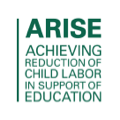Eliminating child labor
Child Labor Elimination Framework
At JTI we respect human rights across our value chain and recognize the Universal Declaration of Human Rights, the International Bill of Human Rights, and the International Labor Organization’s Declaration on Fundamental Principles and Rights at Work.
Human rights due diligence is an essential and integrated part of our business processes allowing us to identify and assess actual and potential human rights risks.
Our human rights strategy is based on five pillars: Embed, Identify and Prioritize, Respond, Measure, and Report. This circular due diligence model is in line with the UNGPs, the Organisation for Economic Co-operation and Development (OECD) guidelines, and the Food and Agriculture Organization (FAO) guidance on responsible agricultural supply chains. Our ARISE program fits under our Response pillar, hand in hand with other grower support programs to respond to identified risks with child labor being one of JTI’s salient human rights issues.
Our vision is to eliminate child labor in our global operations and supply chains. Child labor is an unacceptable practice that has no place in our supply chain. It is, however, a complex problem that requires a comprehensive and collaborative approach to solving it.
We have developed a holistic approach to tackle child labor. Our new child labor elimination framework consists of a mission, commitment, and strategic levers to deliver on our vision. The ARISE program plays a key role within this framework to prevent and remediate child labor risks identified in our supply chain.
Our child labor elimination framework reiterates our commitment to respect and support child rights, in accordance with the Convention on the Rights of the Child, the UN Guiding Principles on Business and Human Rights, OECD Guidelines for Multinational Enterprises, and relevant ILO Conventions such as Convention 138 on Minimum Age for Admission to Employment and Convention 182 on The Elimination of the Worst Forms of Child Labor. We base our approach on the internationally agreed definitions provided in these Conventions.
Child Labor Elimination Statement
Child labor is unacceptable yet remains a serious issue across smallholder agriculture worldwide. JTI is aware that the risk of child labor is present at various points of our value chain: tobacco leaf harvesting, the non-leaf supply chain and the sale of tobacco.
Read our Child Labor Elimination Statement here
Strategic framework

Our mission
No child labor. Our position is clear: child labor is unacceptable.
Our vision
Eliminate child labor in our global operations and supply chains.
Create thriving agricultural communities where we source tobacco, where children are free of child labor.
Commitment
Identify child labor where it exists in our supply chains, find practical responses to support its elimination, provide remediation where needed and work to ensure children have access to education.
Guiding principles

- We embed human rights due diligence into our business operations to help identify, prevent, mitigate, and remediate child labor following a five step human rights due diligence cycle (see below).
- We follow JTI’s culture of Kaizen and cycle of continuous improvement to help suppliers improve progressively through constructive dialogue and improvement measures.
- We take a child-centered approach and rightsholder perspective, trying to keep the best interests of the child at the center of decision-making.
- We focus on prevention, designed to prevent children from entering child labor. Where we have caused or contributed to adverse impacts, we aim to provide or cooperate in remediation.
- We focus on the broader issues via a community development and holistic approach that tackles root causes. We do not view child labor in isolation, everything is connected.
- We cannot eliminate child labor on our own, as such we seek to collaborate and partner to help ensure a more strategic, impactful, and effective approach.
- We leverage and strengthen existing JTI-wide initiatives.
- We measure our impact and make our decisions based on impact assessment.
- We take an area-based/landscape approach.
- We are transparent on the steps we take, our challenges and successes. We communicate in a credible way.
Child Labor Elimination Activities Mapping





